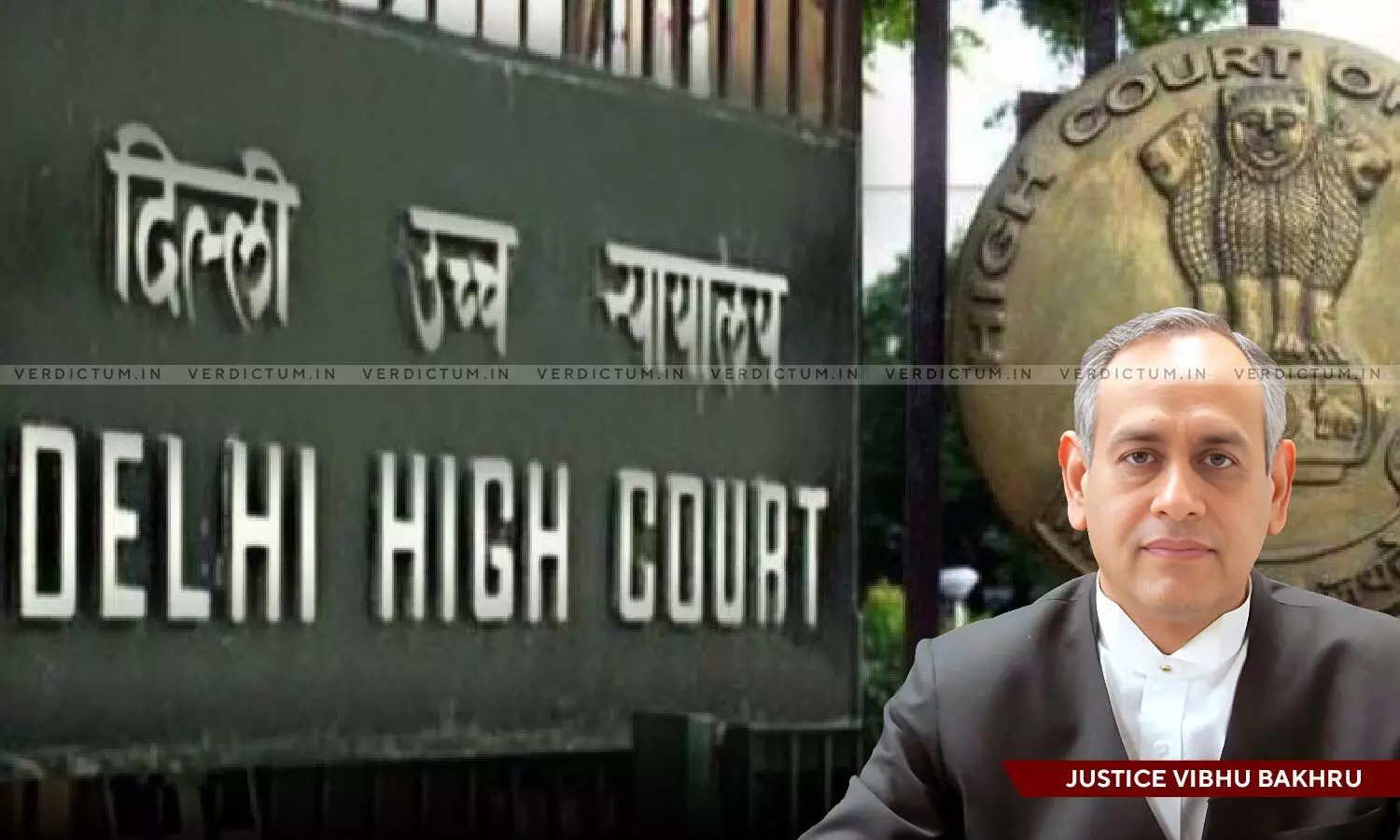
Delay Caused On Account Of Contingencies That Arose During Execution Of Project Does Not Amount To Defrauding Ministry Of AYUSH: Delhi HC
 |
|The Delhi High Court recently reiterated that it has at innumerable instances expressed its disapproval for imparting criminal colour to a civil dispute, made merely to take advantage of a relatively quick relief granted in a criminal case in contrast to a civil dispute.
Such an exercise is nothing but an abuse of the process of law which must be discouraged in its entirety, added the Court.
The Single Judge Bench of Justice Vibhu Bakhru observed that “by no stretch can it be concluded that the Petitioner herein has deceptively or intentionally tried to cheat and de-fraud the Ministry of AYUSH as the petitioner was not being at fault for the delay caused on account of various contingencies that arose during the execution of the project.”
Senior Advocate Rajshekhar Rao appeared for the Petitioner, whereas APP Raguvender Verma appeared for the Respondent.
Going by the background of the case, the Ministry of AYUSH introduced a Scheme for Development of Ayush Clusters’ for capacity building through a cluster-based approach for Ayurvedic, Siddhi, Unani, and Homeopathic drugs, inter alia, that the Scheme would be implemented on the Support from Department of AYUSH and support would be by the way of a grant to the Special Purpose Vehicle (SPV), formed by a group of entrepreneurs from AYUSH sector. In the year 2010, Lipakshi Ayush Park Private Limited floated to develop an AYUSH cluster near Anantapuram, Andhra Pradesh under the said scheme and the same was accepted and an initial grant of INR 2 crores was released. The said company could not achieve the targets of the scheme and misappropriated the grant of personal gain which resulted in withdrawal of the financial support. Further, the initial grant released by the Ministry of AYUSH was sought from the said company, who returned INR 1,23,00,000 and the remaining amount of INR 77 lakhs was to be paid within 90 days which was, however, not returned. Consequent to the same, a civil suit was preferred wherein ex-parte decree was granted in favour of second Respondent and the said company along with its directors jointly and severally were held liable to pay a sum of INR 11,42,59,556/- along with interest.
Thereafter an Execution Petition of recovery suit was filed in 2018. While the matter rested, second Respondent filed a complaint before Economic Offences Wing regarding cheating the government. This culminated in registration of FIR under sections 420, 406 and 120B of IPC against the company and its directors.
While examining whether the relevant ingredients of offences for which the Petitioner was charged with, were prima facie made out, the Bench found that Petitioner was accused of committing crimes of cheating and criminal breach of trust.
The Bench clarified that in accordance to section 405 of IPC, misappropriating or converting another person's property for one's own use with the purpose to defraud was considered a criminal breach of trust, whereas on the other hand, cheating incorporated the ingredient of having a dishonest or fraudulent intention that was intended to persuade the other party to give any property to a specified person was an offence described under section 415 of IPC.
Thus, the High Court stated that ‘dishonest intention’ was expressly stated in both sections as a pre-requisite for even establishing the commission of the charges prima facie which remained absent in the complaint.
The High Court elucidated that the conduct of the Petitioner had been bona fide and the Petitioner had himself engaged and paid the PMC (ILFS) and other contractors.
While dealing with issue of intent to cheat or fraudulent intention that had not been made out against the Petitioner, the High Court stated that though the instant dispute certainly involved determination of issues which were of civil nature, pursuant to which second Respondent had even instituted a civil suit, one could by no means stretch the dispute to an extent, so as to impart it a criminal colour.
The Bench went on to state that second Respondent had submitted that the Ministry of AYUSH was fully aware of the pure civil nature of the transaction and knowing that the facts constitute civil wrong sans criminality or fraud or cheating, itself-resorted to civil recourse by the filing of a civil suit in 2014.
Accordingly, the Bench allowed the petition seeking quashing of FIR and proceedings against the Petitioner for offences under Section 420, 406 and 120B of IPC.
Cause Title: Srinivasa Balaji v. State of NCT Delhi [Neutral Citation: 2023: DHC: 4010]
Click here to read / download Judgment